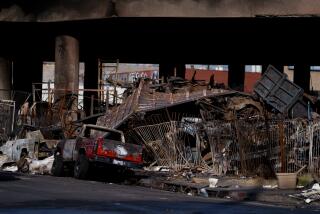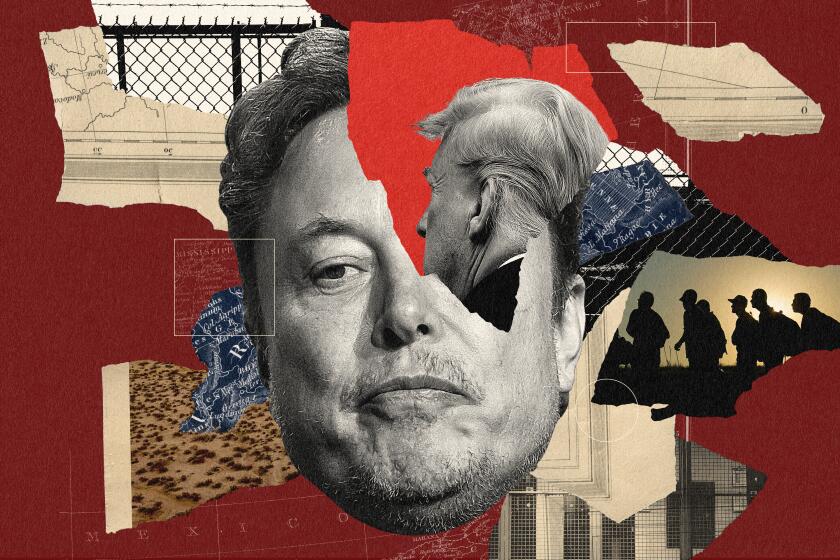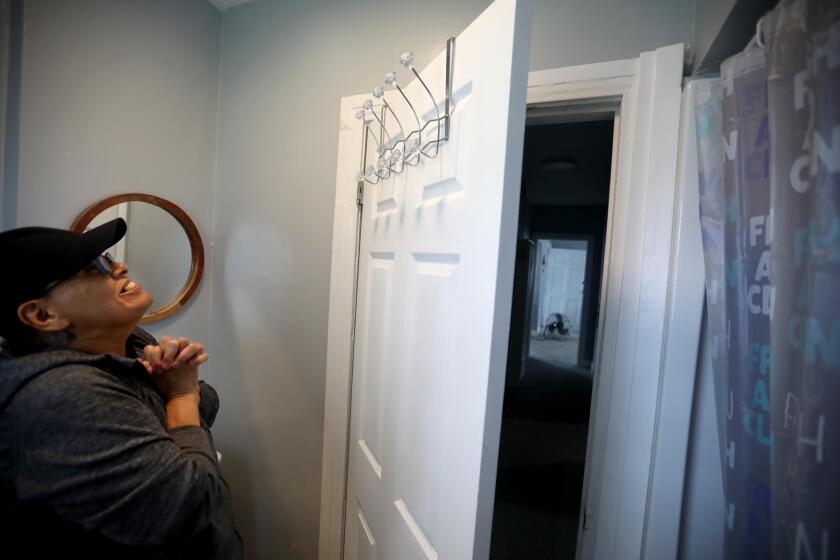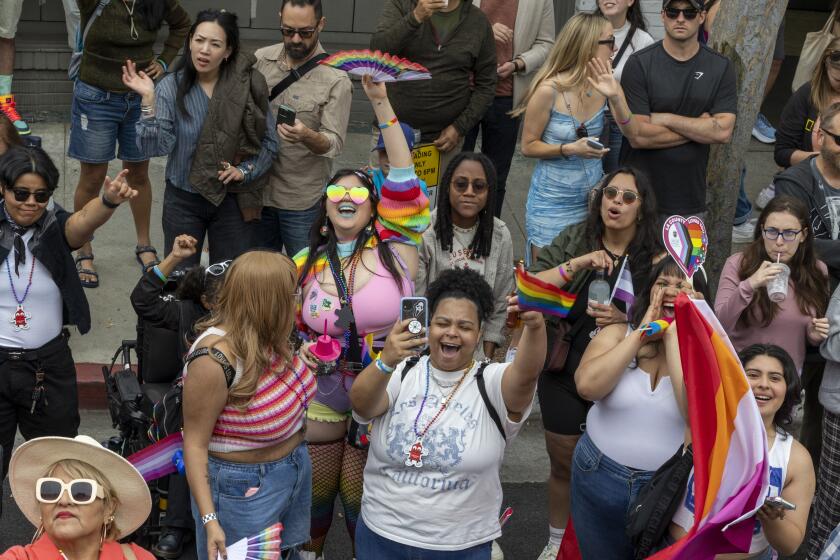Hahn LAX Plan Criticized at Hearing
Most of the speakers at a public hearing Monday on Mayor James K. Hahn’s controversial modernization plan for Los Angeles International Airport denounced the proposal, saying that it was too expensive and failed to improve security and constrain growth.
Local, state and federal lawmakers joined airlines and residents in criticizing Hahn’s voluminous plan and called on airport and planning commissioners to vote down the proposal. Many complained that final environmental studies released on April 28 did not incorporate concerns raised in more than 3,200 comments that had been submitted on Hahn’s plan last fall.
“Neither the final LAX master plan nor the final environmental documents even begin to address the myriad concerns of people in our area,” said Rep. Maxine Waters (D-Los Angeles), one of the few top officials at the hearing. “Alternative D is nothing more than a $9-billion boondoggle.”
About 280 people signed in and 72 turned in cards to speak at the hearing -- the first of a series on Hahn’s plan scheduled before city and county agencies this summer.
Planning and airport commissioners are expected to vote on the blueprint, along with a series of planning documents, on June 14.
The hearing at the Los Angeles Convention Center on Monday was virtually a rerun of the dozen sessions that had been held by the city’s airport department over the last 10 months to obtain public testimony on Hahn’s plan.
A majority of those sessions were attended by opponents of Hahn’s plan and by supportive union organizers, many sporting bright yellow shirts that read, “Fix LAX Now.” Monday was no different.
“We’re talking about an investment in our future, and we need to act now,” said David Kersch, government affairs representative of the Carpenters and Contractors Cooperation Committee. “We would like to focus on another aspect of security, and that’s job security. This plan would create 50,000 jobs that people could use to provide for their families.”
Hahn first introduced the plan soon after the Sept. 11 terrorist attacks as a way to improve security at the world’s fifth-busiest airport. It’s taken city officials nine years and $126 million to bring a proposal to modernize LAX to city agencies for a vote.
The mayor’s proposal would dramatically change the way passengers get to the airport by routing private vehicles to a check-in center near the San Diego Freeway. It also would separate the facility’s two sets of parallel runways and install center taxiways, demolish Terminals 1, 2 and 3, and knock down parking structures in the central terminal area and replace them with a new terminal complex.
Earlier this month, Hahn bowed to pressure and ordered a security study to determine if his makeover would make the airport more secure. Several speakers at Monday’s hearing suggested that city officials postpone any action on the plan until Rand Corp. concludes the study later this year.
Los Angeles County Supervisor Don Knabe, who represents communities around LAX, will introduce such a motion to the Board of Supervisors at next Tuesday’s meeting, said Thomas R. Martin, Knabe’s deputy.
Although many disagreed with the mayor’s LAX plan Monday, most speakers agreed that something needed to be done to fix the airport. Several said they were “encouraged” by a proposal from Councilwoman Cindy Miscikowski that she calls her “consensus plan.”
Her makeover would require city and county officials to adopt Hahn’s blueprint and split construction into two phases.
Projects that many residents, airlines and business leaders agree on would be built in the first phase; more controversial elements would be moved to the second phase.
The projects in the first phase would include an elevated tram, a transit hub and a consolidated rental car center. Construction of the passenger check-in center and the demolition of terminals on the airport’s north side would be in the second phase.
“The specific plan put in place by [city] staff now essentially green-lights everything,” Miscikowski said. “My plan has more checkpoints, more caution and more oversight.”
More to Read
More to Read
More to Read
Start your day right
Sign up for Essential California for news, features and recommendations from the L.A. Times and beyond in your inbox six days a week.
You may occasionally receive promotional content from the Los Angeles Times.






